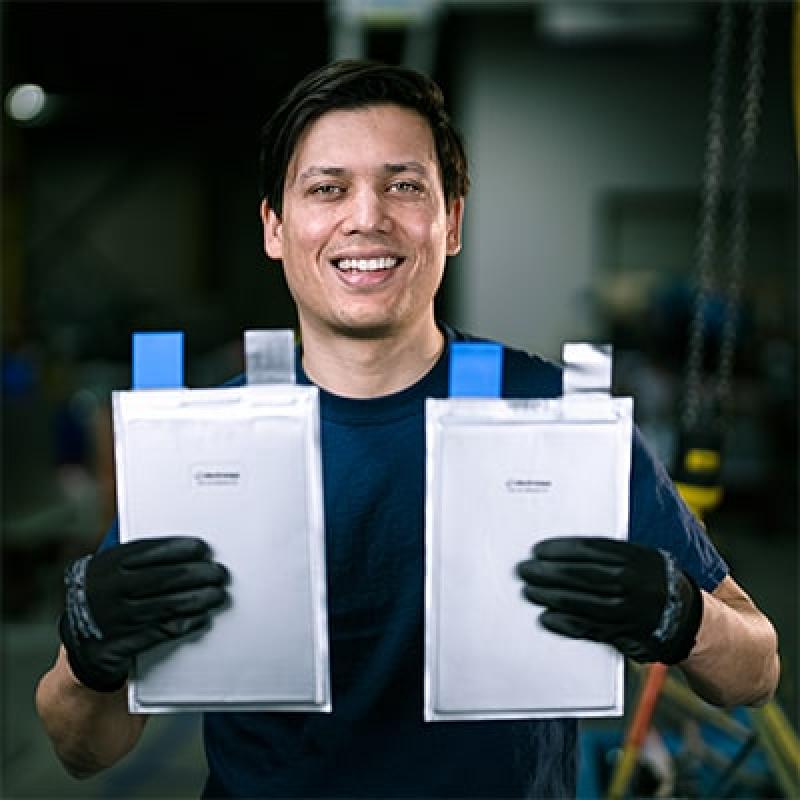
Mississauga-based Electrovaya Inc. has weathered some very tough times. But with 26 years of experience in the electric battery space and a proprietary technology that dramatically extends battery life, its CEO believes the firm will become a dominant force.
A lack of “serious electric motor vehicles” on the market near the end of the 2010s turned Electrovaya (EFL-T) into “survivors,” as CEO Raj DasGupta put it.
“The market wasn't there, we ended up having to make a difficult decision to either carry on with our focus or give up and find a new way,” said DasGupta, who took over the company from its co-founder, his father, in 2022. “We chose to do the latter. We shrunk our workforce by 90 per cent,” down to only 25 people.
“Electrovaya was on life support, essentially. But we had developed an interesting technology which saved the company.”
The company's lithium-ion Infinity batteries, he explained, do the work of 10 EV batteries and can last a decade or longer. Faced with a miniscule automotive EV sector, Electrovaya switched its focus to the warehousing, autonomous guided vehicles, power grid, medical and mobile device sectors following its 2018 restructuring.
Walmart was its first client under the new strategy, replacing the retailer’s forklift batteries with those of Electrovaya. Now the company has grown back to over 80 employees, and posted $13.6 million in revenue in its recent Q4 report.
It is also building a giga-scale plant in Jamestown, N.Y. to meet growing demand, aiming to have cells delivered from that site by Q2 or Q3 2024.
Electrovaya’s Infinity battery
DasGupta said the company’s largest customer is a Fortune 100 e-commerce retailer, with Walmart being its second largest. It has also partnered with the Raymond Corporation, a subsidiary of Toyota that manufactures forklift trucks and pallet jacks.
The Infinity battery has been the subject of over 100 patents and patent applications.
The core of Electrovaya’s battery is its ceramic separator membranes, which he explained make the lithium-ion cells much safer. The Raymond Corp. even set the batteries on fire as part of its testing process, according to DasGupta.
It also has a much longer life cycle than traditional batteries, lasting between 9,000 and 10,000 charges. That longer lifespan also means it won’t have to be recycled as early or as often as competing products.
The intellectual property-sensitive parts of the cell are made in Japan, shipped to China and then sent to Canada to undergo final assembly at Electrovaya’s Mississauga headquarters. Currently, DasGupta believes Canadian battery manufacturing isn’t as well-supported as it could be.
“Basically, the Fortune 500 list, a good portion of them are starting to use our products,” he said. “So Mars, Home Depot, Lowe's, these types of companies that generally move goods are all . . . If they're not already looking at it, they should be. Our solution ultimately saves.”
Electrovaya is looking at a number of different avenues for future battery applications, and plans on returning to the automotive space with solid-state technology which is under research and development.
“(We're) not planning to use Infinity technology, because they're not going to pay a premium or they don't need the cycles,” DasGupta said.
The solid-state technology could also be applied to the aerospace market.
Electrovaya’s future applications
“We, again, scratch our head and say, ‘Hey, who else needs a long-cycling, high-safety battery?’” DasGupta said. “So we were looking at electric buses to a degree right now. We're also looking at . . . grid-scale energy storage systems, where they need to last 20 years.”
Electrovaya hopes to get its grid-scale energy storage systems into the market by 2025, and has started to talk to partners in that space.
There is also an expectation of continued supply chain issues in the new year, although nowhere near to the same level as it was in the beginning of 2022.
“The beginning of the year was very hard,” he said. “We wouldn't get screws, we wouldn't get plastic parts. Lead times and everything was up in the air.”
The short-term focus in 2023 remains on material handling. The company put out public guidance of $57.2 million in revenue in the 2023 fiscal year, though DasGupta thinks it "can probably" do better.
In the long-term, Electrovaya plans to position itself as one of the major lithium-ion battery groups globally. Any such upgrading to get to that level would include an expansion of its Canadian footprint as well.
“We're a minnow but I think we’ll become a lion eventually,” he said. “Because we're doing such a good job.”
EDITOR'S NOTE: This article was updated after publishing to clarify information about the solid-state batteries under research and development and to correct the date Raj DasGupta became CEO of Electrovaya.










